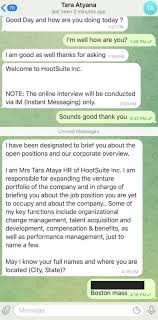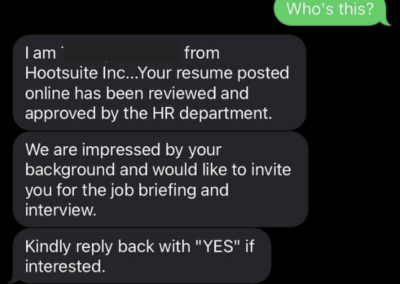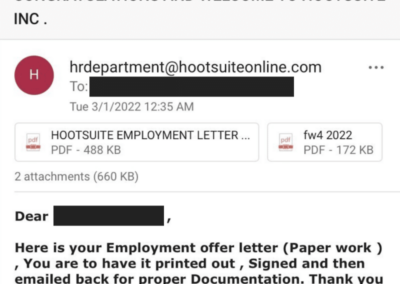Safeguarding Against HR Scams
How to Protect Yourself in the Hiring Process
HR scams have become increasingly prevalent in recent years, with fraudsters exploiting the job search process to deceive unsuspecting individuals. These scams often target job seekers looking for employment opportunities and can lead to financial loss, identity theft, or other forms of fraud. In this blog post, we’ll explore how HR scams work and provide practical tips to help you protect yourself from falling victim to these fraudulent schemes.
Understanding HR Scams
HR scams typically involve the following tactics:
-
Fake Job Postings: Scammers create fake job postings on online job boards, social media platforms, or fake company websites to lure job seekers. These postings may promise high-paying positions with flexible hours or remote work options to attract attention.
-
Phony Interviews: Scammers conduct fake interviews with job seekers to gather personal information or solicit payment for fake training materials or background checks. They may impersonate HR representatives from legitimate companies and use convincing scripts to deceive victims.
-
Payment Requests: Scammers may request payment from job seekers for various reasons, such as processing fees, training materials, or background checks. They may pressure victims to make payments quickly to secure the job or advance to the next stage of the hiring process.
-
Identity Theft: In some cases, scammers may use the personal information obtained from job seekers, such as Social Security numbers or bank account details, to commit identity theft or other forms of fraud.
Protecting Yourself
To protect yourself from HR scams, it’s crucial to remain vigilant and follow these essential tips:
-
Research Employers: Before applying for a job or responding to a job posting, research the employer to ensure they are legitimate. Visit their official website, verify their contact information, and search for reviews or complaints from other job seekers.
-
Verify Job Postings: Be skeptical of job postings that seem too good to be true or contain spelling or grammatical errors. Look for red flags, such as requests for payment or personal information upfront, and avoid responding to suspicious postings.
-
Verify Interviewers: If you are contacted for an interview, verify the identity of the interviewer and the legitimacy of the company. Ask for their contact information and independently confirm their identity through official company channels.
-
Avoid Payment Requests: Be cautious of any requests for payment as part of the hiring process, especially if they are required upfront or seem excessive. Legitimate employers typically cover the costs of background checks or training materials themselves.
-
Protect Personal Information: Avoid sharing sensitive personal information, such as Social Security numbers or bank account details, with unknown individuals or companies. Only provide this information after verifying the legitimacy of the employer and the hiring process.
-
Trust Your Instincts: If something feels off or too good to be true, trust your instincts and proceed with caution. If you have doubts about a job opportunity or encounter suspicious behavior during the hiring process, err on the side of caution and avoid further engagement.
HR scams can pose a significant threat to job seekers, but by staying informed and following the essential tips outlined in this post, you can protect yourself from falling victim to these deceptive schemes. Remember to research employers, verify job postings and interviewers, avoid payment requests, protect your personal information, and trust your instincts. With proactive measures and awareness, you can safeguard yourself against HR scams and ensure a safe and secure job search experience.







